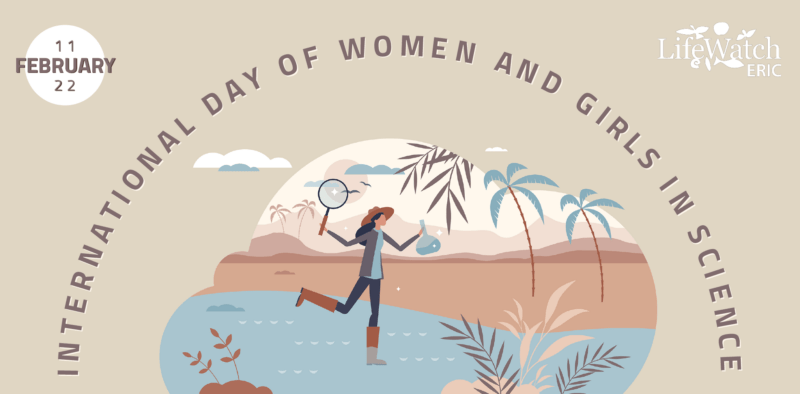
On the occasion of the UN International Day of Women and Girls in Science, LifeWatch ERIC Chief Communication Officer, Sara Montinaro, interviewed Africa Zanella, the infrastructure’s International Gender Officer.
When asked to break down what her work entails for those unfamiliar with the position, Zanella explained:
“[My role] means ensuring that there is gender balance in decision-making: in processes, in programmes, in projects, there is always a gender lens […] sometimes when we start looking at research there are already established models which will not yet have been desegregated in terms of gender – so they are repeating the same mistakes over and over again, without giving due consideration to the idea that the role of women has changed over time and that needs have changed […] sustainability depends on women having an equal role.”
On the subject of her own experience working as a woman in scientific fields, she mused that, while “discrimination takes place everywhere”, she has always “broken barriers”, and that these experiences underpin her advocacy work.
“I don’t advocate for equality per se between men and women; I advocate for equal opportunity. If a woman chooses to go into science, there should be no barriers, just as if a man chooses to go into science there should be no barriers, and if different sexual identities go into science, there should be no barriers.”
She went on to identify the reasons why women and girls are often overlooked in research as stereotypes, unconscious bias and cultural issues, explaining: “The established pattern has been there for such a long time that people assume that that’s the way it is, […] but the stereotype is not right across the board; there are a lot more women doctors than there were in the past, even over my own lifetime – but for researchers, it’s a different story.” Continuing, she proposed that the answer is to keep advocating for equality, and not to accept unfair treatment, advising “if your organisation does not appreciate your contribution and your relevance to the topic that is at hand, then you have to change,” emphasising that recognition should be defined by how we reward people financially.
Zanella concluded with the following message for young women in science:
“I hope that I encourage young girls to look at themselves as the carriers of this innovative practice which says ‘I am not a victim, and I am not a hero. But I am a human being and I want to live my full potential, therefore; don’t put any barriers in front of me. Let me see what the law says, let me see how my company is supporting me, let me see how I can make my contribution to the world.’ And that is the message that I would like to convey on the International Day of Women and Girls in Science: Make a contribution.”
You can listen to the full podcast below, or find it on all major podcast platorms.